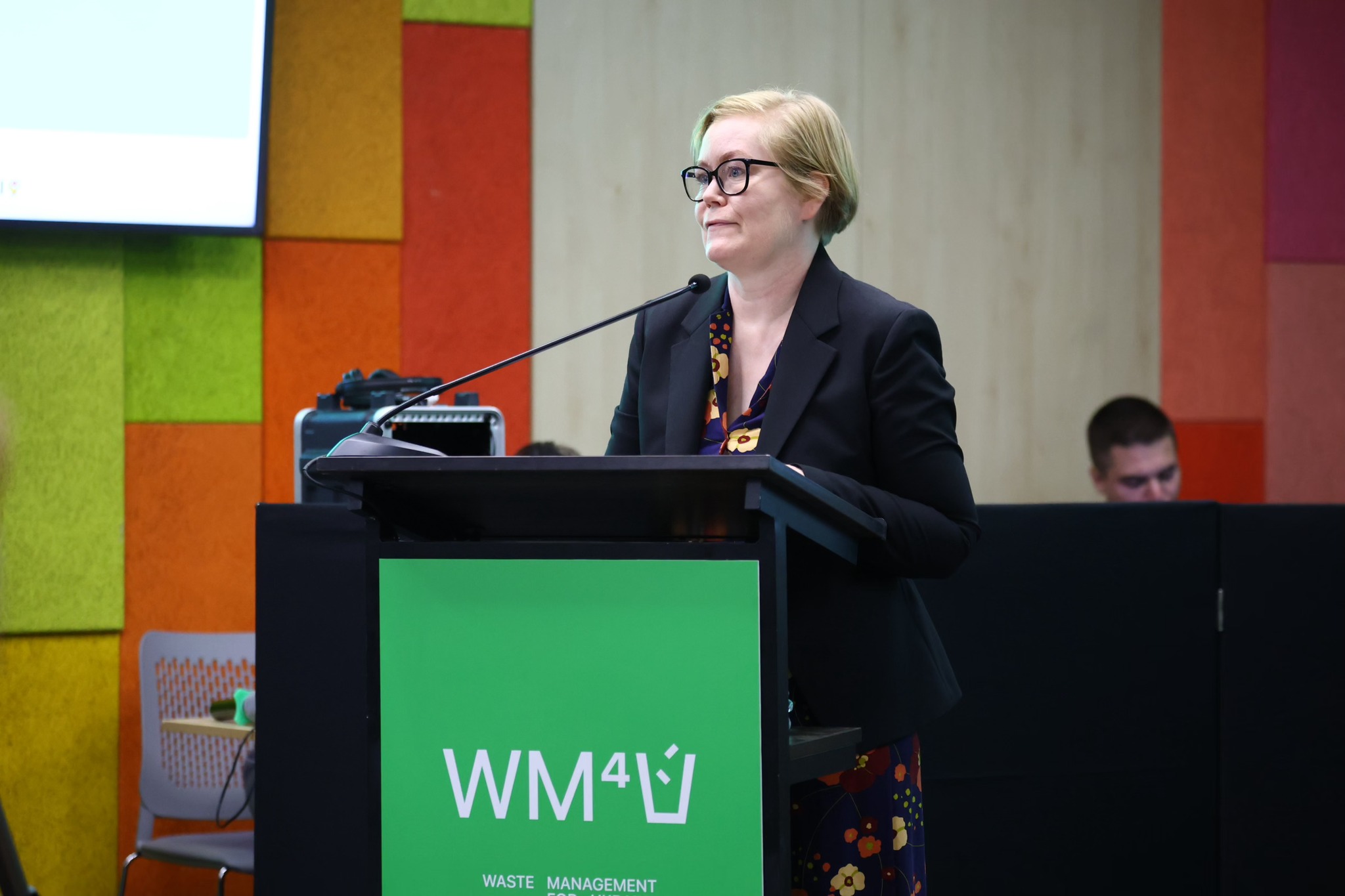In Kyiv, the official presentation of the project "Strengthening Household Waste Management in Ukraine" (WM4U) took place.
The program is based on Sweden's Strategy for Cooperation with Ukraine in the areas of recovery and reform for 2023-27, Ukraine's integration into the EU, and compliance with EU legislation on environmental protection and waste management, as well as the Paris Agreement, COP28, and the Sustainable Development Goals.
Martina Kvik, Deputy Head of Mission at the Embassy of the Kingdom of Sweden in Ukraine, noted that the program was initiated at the request of President Volodymyr Zelensky during a meeting with the Prime Minister of Sweden in Ukraine in 2022.
“Sustainable waste management is one of the priorities of Ukraine's cooperation with Sweden in the recovery and reform program. We are honored that Ukraine has chosen Sweden as one of its partners in this area,” said the Deputy Head of Mission.
“Sustainable waste management is a significant challenge that affects all of us at all levels,” emphasized Martina Kvik. “The EU's Framework Directive on Waste Management is extremely ambitious, requiring that 60% of waste in EU countries be reused by 2030. This is a big challenge for any country, not just Ukraine during wartime. However, moving towards the reuse of materials allows us to make better use of our shared resources and contributes to sustainable development and the creation of a circular economy.”

“The Government of Ukraine has already approved the National Waste Management Strategy until 2030. It provides for a systematic approach at both the national and regional levels. The volume of waste generated will gradually decrease as more waste is recycled and reused. The strategy will support the development of relevant legislation; improve the state of the environment and the sanitary and epidemiological welfare of the population. Investment in waste management is also planned, leading to the creation of modern infrastructure that will operate in strict accordance with EU legislation. An information system will be implemented to ensure monitoring and control of waste management, including information on the nomenclature and quantity of waste generated, recycled, disposed of, and removed. An important control tool will be the creation of a National Register of waste generation sources, capacities in waste management, and reporting systems for economic entities,” noted Oleksii Kuleba, Deputy Prime Minister of Ukraine and Minister of Community and Territorial Development.
“Strengthening Household Waste Management in Ukraine (2024–2027)” is one of Sweden's largest initiatives for Ukraine in terms of development and cooperation. The program is funded by the Government of Sweden through the Swedish Agency for International Development Cooperation and will be implemented by the Swedish Waste Management and Recycling Association and the International Department of the Swedish Association of Local Authorities and Regions from 2024 to 2027,” said program director Olha Glazunova.
At the national level, the program aims to develop a waste management strategy, including for demolition waste, reform the national tariff system based on sustainable development principles, implement recommendations for the separation and processing of organic waste to reduce landfill disposal and greenhouse gas emissions, strengthen producer responsibility for waste management, and control landfill gas emissions, among others.
At the local and regional levels, the program will support pilot projects for implementing the entire chain of household waste management. Support will include knowledge sharing, as well as providing equipment and other assistance to local authorities to modernize waste management infrastructure and technologies to meet EU standards. This includes planning investments in large recycling plants.
Vasyl Shkurakov, First Deputy Minister of Community and Territorial Development, noted that Sweden's over 30 years of experience is undoubtedly important for creating a sustainable waste management system.
“Communities in Ukraine, due to significant destruction from Russian aggression, have a substantial demand for improving solid waste management. According to preliminary estimates, 23 regions in Ukraine have already reported a need to create more than 200 sorting lines, necessary documentation has already been developed for 17 projects, and 19 regions have emphasized the necessity of constructing over 50 waste processing plants, 5 of which have also developed project documentation,” said Vasyl Shkurakov.
Olen Kramarenko, First Deputy Minister of Environmental Protection and Natural Resources of Ukraine, reported during the presentation that a framework law “On Waste Management” is already in effect in Ukraine, and several sub-laws have been initiated and developed.
Key partners of the new Swedish-Ukrainian multi-year initiative "Strengthening Household Waste Management in Ukraine" (WM4U) include the Ministry of Community and Territorial Development of Ukraine, the Ministry of Environmental Protection and Natural Resources of Ukraine, international and local stakeholders, including local and regional authorities, associations of local authorities, international donors, and financial institutions, such as Nefco (Nordic Environment Finance Corporation).





















